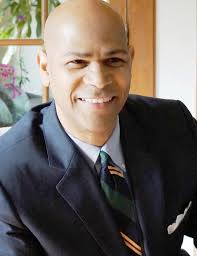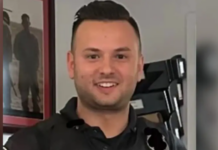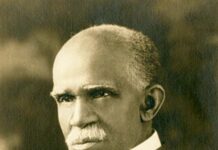By Derickson K. Lawrence and Hank Miller

“I don’t need no fake-ass legislators who are allowing fear-mongering to try and go after our people,” said Assemblyman Michael Blake, D-Bronx. He was allegedly referring to Senate Democrats who are looking to fix the 9-week-old (as of this writing) criminal justice reform law. In a deep blue state and Legislature, this sort of open fracture among liberal and progressive voices is good for democracy, even when neither side shows signs of backing down.
Fighting for an end to cash bail, criminal justice advocates pulled out all the stops last year. The argument is that the old practice created two tiers of the justice system. In one, wealthy people can bond out of jail and work their cases upon release; in the other, poor people – often accused of low-level crimes – can’t afford bail and have their lives upended while awaiting trial. The bill signed by Gov. Andrew Cuomo became law Jan. 1, 2020. But just days after the law took effect, all hell broke loose.
A spate of anti-Semitic attacks over the holidays in New York City and surrounding areas spurred critics of the bail law to call for a hate crime exemption to it. Independently, others have chimed in. High-ranking judges have called for rollbacks to protect people from possibly dangerous defendants being put back on the streets. Former Westchester district attorney and New York’s Chief Judge Janet DiFiore, as one example, called the new law “counterproductive,” as reported by the New York Post.
“At this moment, New York – alone in the nation – does not allow judges the discretion to consider the critical important factor of whether a defendant poses a credible risk of danger to an identified person or groups of persons,” she said at her annual state of judiciary speech.
While passion is high, many of the voices speaking out against the law are not opponents. Senate Majority Leader Andrea Stewart-Cousins, D- Yonkers, said her plans would create “the most progressive justice reforms and justice systems in the nation,” but that she would give judges some discretion with extremely strict guidelines and guardrails. And both Cuomo and NYC Mayor Bill de Blasio, Democrats who are frequently at odds, have expressed support for the concept of tweaking the law to include some form of judicial discretion.
Adding to the pressure is the change in public sentiment. A Feb. 24, Siena College poll found that 40 percent of New York voters support the law, down from 55 percent from last April. However, the change in public sentiment to date has not been enough for a key progressive holdout: Assembly Speaker Carl Heastie, D-Bronx.
Why? He is waiting for “relevant data to analyze” before he responds.
Nonetheless, as more members of both houses of the New York Legislature reconsider their positions, the sticking point for the public remains whether the elected officials can find the right balance between individual rights and public safety.
That balance can be best achieved by letting the judges determine on a case-by-case basis who is a flight risk or a danger to the public, and helping them make this determination through data-based assessments. New Jersey has implemented such a model worth noting. Judicial discretion is also necessary in the discovery component of the law. To turnover “contact information on anyone who has relevant information on a case,” where the defendant on the case walks, imposes a chilling effect on those who may want to aid law enforcement in solving crimes, as with Crime Stoppers, or with victims of domestic abuse.
Advocates of the new law should take solace in the notion that there is a common-sense middle ground without having to retreat. To get there legislatively requires compromise. In that setting, the loudest voice – or the most profane – does not necessarily produce the best outcome. Protecting communities from violence and preventing the return to over-incarceration are still mutually achievable goals.
“Even the best pieces of legislation sometimes have unintended consequences that need to be assessed and acted on,” said de Blasio.
We can’t argue with that.
Derickson Lawrence and Hank Miller are residents of Mount Vernon. Lawrence is chairman of Westchester County Crime Stoppers, and a 2018 congressional candidate.





